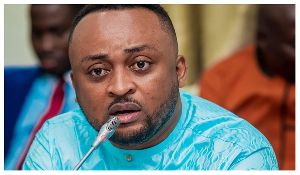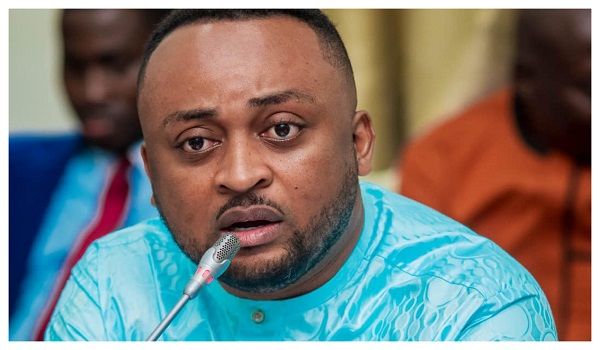 Member of Parliament for Old Tafo, Ekow Vincent Assafuah
Member of Parliament for Old Tafo, Ekow Vincent Assafuah
Member of Parliament for Old Tafo, Ekow Vincent Assafuah, has expressed concern over the Auditor-General’s decision to undertake a special audit of the government payroll, describing it as a waste of state resources.
According to him, there is already a system in place that conducts monthly audits of the public payroll, making the proposed special audit unnecessary and redundant.
“More importantly, this so-called special audit duplicates an existing mechanism already set in motion by the previous administration. Under that initiative, Internal Auditors, the Controller and Accountant General’s Department (CAGD), and the Fair Wages and Salaries Commission (FWSC) have been conducting monthly reviews of public sector payrolls to identify and eliminate ghost names,” he said.
“There is absolutely no justification for this parallel exercise, which only wastes state resources, burdens the already overstretched staff of the Audit Service, and sends the wrong signals to civil and public servants across the country.”
He has therefore urged the Auditor-General, Mr. Johnson Akuamoah Asiedu, to incorporate any necessary payroll reviews into the routine audit plans for the 2024/2025 audit year, instead of pursuing this as a special operation.
“That would preserve institutional credibility, ensure transparency, and maintain public confidence in the Audit Service,” he added.
Read his full post below:
It is with deep concern that I express my disappointment in the Auditor-General, Mr. Johnson Akuamoah Asiedu, for agreeing to embark on a payroll audit that appears not only premature but also politically motivated. The timing and intent of this exercise raise fundamental questions about the independence and objectivity of the Audit Service under his leadership.
The current audit, which seems designed as a tool to flush out individuals employed by the previous administration who are perceived to be politically exposed, lacks merit and undermines the principles of fairness and due process. Mr. Akuamoah Asiedu should have rejected this assignment outright—especially in the face of ongoing mass terminations that are creating anxiety among hardworking public servants.
What is even more troubling is the growing perception that the Auditor-General was compelled to undertake this exercise merely as a desperate attempt to retain his position. If this is true, it casts a dark shadow over the integrity of the entire operation and calls into question the autonomy of an office that is meant to serve as a pillar of accountability—not as an accessory to political expediency.
More importantly, this so-called special audit duplicates an existing mechanism already established by the previous administration. Under that initiative, Internal Auditors, the Controller and Accountant General’s Department (CAGD), and the Fair Wages and Salaries Commission (FWSC) have been conducting monthly reviews of public sector payrolls to identify and eliminate ghost names.
There is absolutely no justification for this parallel exercise. It only wastes state resources, burdens the already stretched staff of the Audit Service, and sends the wrong signals to civil and public servants across the country.
This audit must not be allowed to become a smokescreen for witch-hunting or a distraction from the more pressing national issues confronting Ghanaians—such as the exchange rate, the ECG’s missing containers, and allegations of drug trafficking and money laundering.
The Auditor-General’s core mandate is to protect the public purse—not to facilitate political cleansing.
Rather than pursuing this as a special operation, Mr. Akuamoah Asiedu should incorporate any necessary payroll reviews into the routine audit plans for the 2024/2025 audit year. That approach would preserve institutional credibility, ensure transparency, and maintain public confidence in the Audit Service.
The path of selective accountability is dangerous and must be resisted. We must protect our institutions from being used as tools for political convenience.
